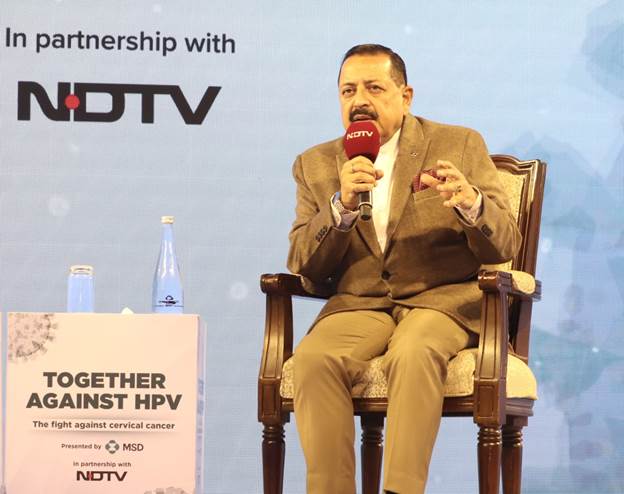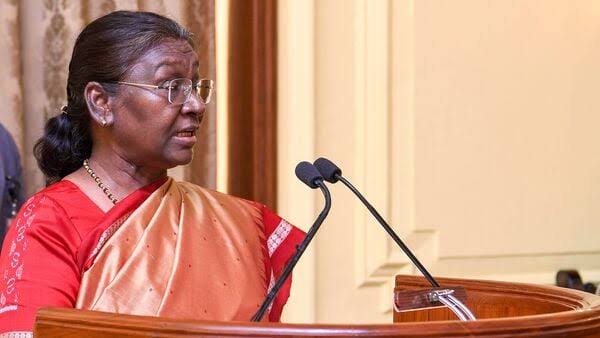Union Minister Dr. Jitendra Singh highlighted the importance of prioritizing women’s health and preventive healthcare during the “Together Against HPV” conclave held in New Delhi. The event, organized by a leading news channel, focused on addressing the challenges posed by cervical cancer in India, which claims nearly 1 lakh women’s lives annually.
 Dr. Singh emphasized the transformative role of India’s indigenous Quadrivalent Human Papillomavirus (HPV) vaccine in the fight against cervical cancer. He noted that the vaccine, developed by the Department of Biotechnology under the Ministry of Science and Technology, is both affordable and highly effective in targeting HPV types 6, 11, 16, and 18, which are closely linked to cervical cancer.
Dr. Singh emphasized the transformative role of India’s indigenous Quadrivalent Human Papillomavirus (HPV) vaccine in the fight against cervical cancer. He noted that the vaccine, developed by the Department of Biotechnology under the Ministry of Science and Technology, is both affordable and highly effective in targeting HPV types 6, 11, 16, and 18, which are closely linked to cervical cancer.
A Major Milestone in Indian Healthcare
Expressing gratitude to Prime Minister Narendra Modi for his support of India’s vaccine programs and Mission “Suraksha” during the COVID-19 pandemic, Dr. Singh hailed the Department of Biotechnology for its pioneering contributions. He noted the department’s earlier success in developing the first DNA vaccine for COVID-19 and its subsequent achievement with the HPV vaccine.
The Quadrivalent HPV vaccine is designed for easy administration, with a two-dose regimen recommended for girls under 15 years and a three-dose regimen for those above 15. Dr. Singh described the vaccine as a “boon for the Indian population,” especially given the high prevalence of HPV infections among women affected by cervical cancer.
India’s Leadership in Preventive Healthcare
Dr. Singh highlighted India’s advancements in healthcare under the leadership of Prime Minister Modi. He remarked that India has transitioned into a global leader in vaccine development and preventive healthcare, with the HPV vaccine showcasing the nation’s capability to innovate and address pressing health challenges.
“India is now recognized globally for its indigenous vaccine development and preventive healthcare initiatives,” he said, adding that the HPV vaccine is a critical step in protecting the 450-500 million Indian women at risk of cervical cancer.
Collaboration and Awareness Key to Success
Calling for a united approach, Dr. Singh stressed the need for collaboration between public and private sectors, NGOs, and academia to strengthen healthcare delivery. He underscored the importance of awareness campaigns, particularly in rural areas, to combat stigma and encourage early detection of cervical cancer.
The Minister reiterated that prioritizing women’s health is central to achieving India’s vision for 2047 and highlighted women-led development as a cornerstone of the nation’s progress.
Integration into National Immunization Programs
The conclave concluded with a call to incorporate the HPV vaccine into India’s national immunization programs. Dr. Singh urged multi-level collaboration to ensure the vaccine’s widespread accessibility and its role in reducing cervical cancer mortality.
India’s growing stature in healthcare and vaccine development, Dr. Singh remarked, is not only a symbol of its scientific progress but also a global benchmark for tackling public health challenges.




